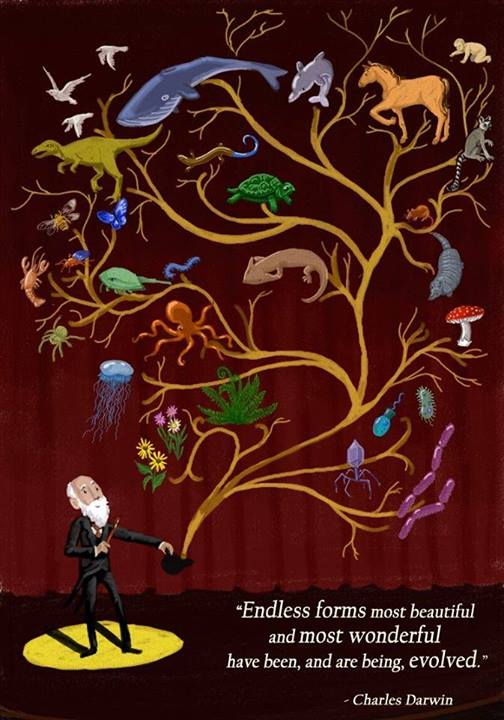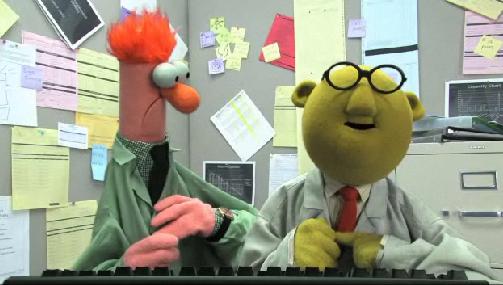
Darwin Day is a celebration to commemorate the anniversary of the birth of Charles Darwin on 12 February 1809. The day is used to highlight Darwin’s contribution to science and to promote science in general.


The beaver is a proud and noble animal
Notes from a bemused canuck

Darwin Day is a celebration to commemorate the anniversary of the birth of Charles Darwin on 12 February 1809. The day is used to highlight Darwin’s contribution to science and to promote science in general.

Nothing is as easy as it looks.
If an experiment works, something has gone wrong.
All scientific discoveries are first recorded on napkins or tablecloths. Engineering advances are drawn inside matchbook covers. Keep supplies of them handy at all times.
Everything takes longer than you think.
Anything that can go wrong will go wrong. If there is a possibility of several things going wrong, the one that will cause the most damage will be the one to go wrong. If anything simply cannot go wrong, it will anyway. If you perceive that there are four possible ways in which a procedure can go wrong, and circumvent these, then a fifth way, unprepared for, will promptly develop.
When you don’t know what you’re doing, do it neatly.
Remember that your supervisor is a busy person – if he/she isn’t, change your supervisor
Experiments must be reproducible, they should fail the same way each time.
Never replicate a successful experiment
First draw your curves, then plot your data.
An experiment may be considered successful if no more than half the data must be discarded to agree with the theory.
Experience is directly proportional to equipment ruined.
Always keep a record of your data. It indicates that you have been working.
To do a lab really well, have your report done well in advance.
If you can’t get the answer in the usual manner, start at the answer and derive the question.
In case of doubt, make it sound convincing.
Do not believe in miracles – rely on them.
Team work is essential, it allows you to blame someone else.
All unmarked beakers contain fast-acting, extremely toxic poisons.
No experiment is a complete failure. At least it can serve as a negative example.
Any delicate and expensive piece of equipment will break before any use can be made of it.
If nobody uses it, there’s a reason.
Always proofread carefully to see if you any words out. No one you ask for help will see the mistakes either.
If you know what you’re doing, how long it will take, or what it will cost, it isn’t research.
For every complex problem, there is a solution that is simple, neat, and wrong.
When all else fails, read the instructions.
If everything seems to be going well, you have obviously overlooked something.
Every solution breeds new problems.

you read the following phrases in a newspaper article:
“A Dutch researcher has created a virus with the potential to kill half of the planet’s population. The virus is a strain of avian influenza H5N1 genetically modified to be extremely contagious”
and
“It’s just a bad idea for scientists to turn a lethal virus into a lethal and highly contagious virus.”
I just had a very interesting phone call. It went something like this:
Phone: Ring!Ring!
Me: Hello, Proteomic Services.
Phone: Hi, I’m new to the field of proteomics and would like to know what the difference is between a full-length protein and a mature protein.
Me: Buh! Sorry, you just caught me debugging some code, so give me a minute to go into science mode.
In a nutshell, the person on the phone wanted to known which protein sequence to use to generate antibodies against. I explained the differences in protein sequences and steered him towards PDBe so he could use structure information to make sure the peptide he’s trying to raise antibodies against isn’t buried deep within the 3D structure.
The amusing bit came when I asked him how he got my contact information. Turns out my name is the first in the list when you search all staff in the proteomics team.
Hee hee, turns out 6 years of biochemistry hasn’t been wasted after all :D